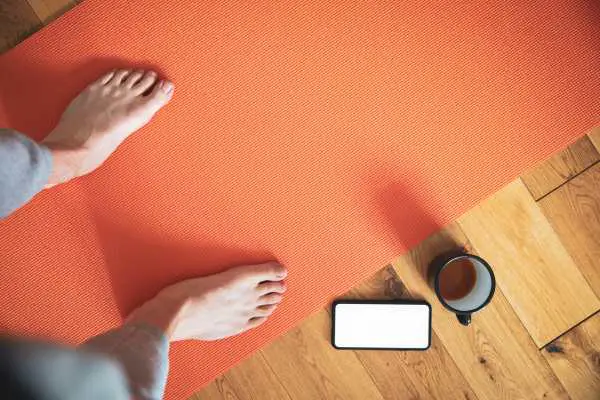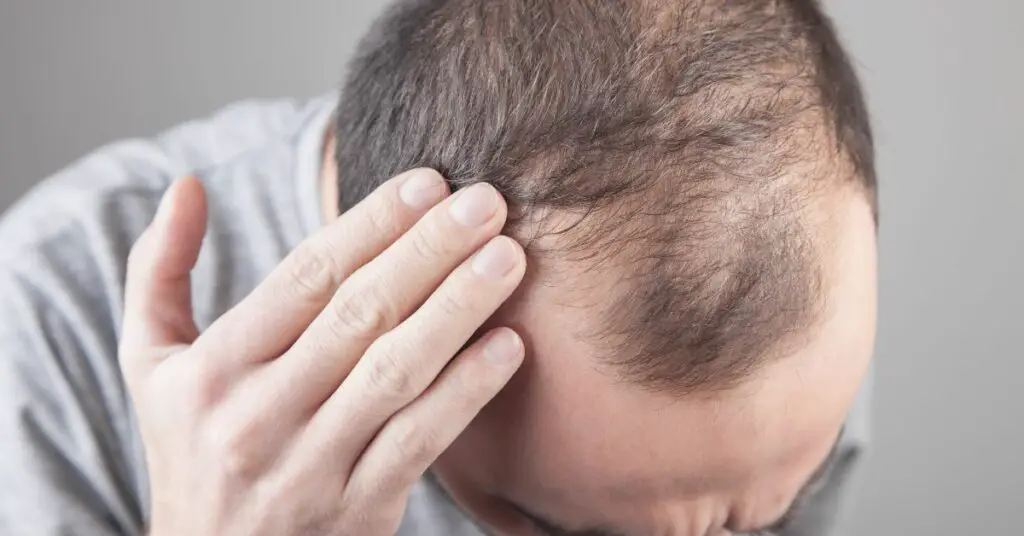Hey there, fellow coffee lovers and meditation enthusiasts! Are you wondering if you can still achieve inner peace and tranquility after that morning cup of joe?
Well, you’re not alone! As someone who needs coffee to function properly (trust me, my coworkers can attest to this), I’ve often wondered if caffeine and meditation can coexist peacefully.
Yes, you can meditate after drinking coffee, but the effects of caffeine may vary for each individual and could potentially affect your meditation practice. It’s important to find the right balance between caffeine consumption and meditation practice that works best for you.
So, let’s delve into the relationship between caffeine and meditation, and find out if we can still meditate after drinking coffee.
Before we dive in, let’s talk about the importance of both coffee and meditation in our daily lives. Coffee is the lifeblood of many of us, providing a much-needed boost of energy and helping us power through the day.
On the other hand, meditation helps us find inner calm and focus, reducing stress and promoting mental well-being. So, the question is, can we have our coffee and meditate too?
Our objective here is to explore the science behind caffeine and its effects on the brain, how long it takes for caffeine to kick in, the different types of coffee and their caffeine content, the physical and mental effects of caffeine on the body and mind, and finally, whether or not we can meditate after drinking coffee.
Let’s get started, shall we?

The Science Behind Caffeine and Its Effects on the Brain
Alrighty then, let’s talk about the science behind caffeine and its effects on the brain.
Caffeine is a natural stimulant found in coffee beans, tea leaves, cocoa, and various other plants. It’s the world’s most commonly consumed psychoactive substance, affecting the central nervous system and altering brain function.
When you consume caffeine, it’s quickly absorbed into your bloodstream and travels to your brain, where it blocks the neurotransmitter adenosine. Adenosine is responsible for making you feel sleepy and relaxed, so when caffeine blocks it, you feel more awake and alert.
Aside from keeping you awake, caffeine has a host of other physical and mental effects. It increases heart rate and blood pressure, stimulates the production of adrenaline, and even increases the body’s metabolism.
Mentally, it can improve mood, increase focus, and enhance cognitive performance.
So, that’s the science behind caffeine and its effects on the brain. But how long does it take for caffeine to kick in? Let’s find out in section III.
How Long Does It Take for Caffeine to Kick In?
If you’re a coffee drinker, you’ve probably experienced the familiar buzz of caffeine coursing through your veins.
But have you ever wondered how long it takes for caffeine to kick in? The answer is that it can vary depending on several factors.
Factors that can influence how quickly caffeine takes effect
- Dosage
The amount of caffeine you consume will affect how quickly it takes effect. The more caffeine you consume, the faster and stronger the effects will be.
- Method of consumption
The method you use to consume caffeine can also affect how quickly it takes effect.
For example, drinking coffee will typically have a quicker effect than consuming caffeine in a pill form.
- Metabolism
Each person’s metabolism is unique and can affect how quickly caffeine is processed and absorbed by the body.
Those with a faster metabolism may feel the effects of caffeine sooner than those with a slower metabolism.
- Age
Age can also be a factor in how quickly caffeine takes effect. As we get older, our bodies tend to metabolize caffeine more slowly, so the effects may be delayed.
How the body processes caffeine
Once caffeine is consumed, it is absorbed into the bloodstream and transported to the brain.
There, it blocks the action of a neurotransmitter called adenosine, which normally makes us feel tired and sleepy.
With adenosine blocked, other neurotransmitters like dopamine and norepinephrine can increase, leading to increased alertness, focus, and energy.
The average amount of time it takes for caffeine to take effect
For most people, the effects of caffeine will start to kick in within 15-45 minutes after consumption. However, it can take up to an hour for some people to feel the effects.
The peak effects of caffeine typically occur within 30-60 minutes after consumption and can last for several hours, depending on the dosage and individual factors.

How Does Caffeine Affect Your Body?
Let’s dive into how caffeine affects your body.
- Firstly, caffeine stimulates the nervous system, which can lead to increased energy, alertness, and mood.
However, this can also cause jitters, anxiety, and restlessness if consumed in excess.
- Caffeine can also affect your heart by increasing your heart rate and blood pressure.
This effect is generally mild, but those with heart conditions should consume caffeine with caution.
- Caffeine can impact your respiratory system by opening up air passages in the lungs.
This effect can be helpful for those with asthma, but it can also cause difficulty sleeping if consumed before bedtime.
- Consuming too much caffeine can also lead to negative effects on the body, such as headaches, dehydration, and digestive issues.
It’s important to consume caffeine in moderation and be mindful of how your body reacts to it.
Now that we’ve discussed the physical effects of caffeine, let’s move on to how it affects your mind.
How Does Coffee Affect Your Mind?
Let’s explore how coffee affects your mind.
- Caffeine is a stimulant that can help increase focus and alertness, which is why many people turn to coffee as a pick-me-up during the day.
- It can also enhance cognitive function, including memory and reaction time.
- However, consuming too much caffeine can have negative effects on your mental health.
It can lead to feelings of anxiety, jitters, and restlessness. It can also disrupt your sleep, which can have a negative impact on your mental health over time.
- Additionally, some people may be more sensitive to the effects of caffeine, which can cause them to feel jittery or anxious even with small amounts of caffeine.
It’s important to be mindful of how caffeine affects your own mental health and to consume it in moderation.
Overall, caffeine can have both positive and negative effects on your mind. In the next section, we’ll explore whether it’s possible to meditate after consuming coffee.

Can You Meditate After Drinking Coffee?
Let’s explore the relationship between caffeine and meditation.
One common question that people have is whether or not it’s possible to meditate after consuming coffee.
The answer is yes, it’s definitely possible. In fact, many people find that consuming caffeine before meditation can actually help them focus and stay alert during their practice.
However, it’s important to be mindful of the potential drawbacks of meditating after consuming caffeine.
For some people, caffeine can increase feelings of anxiety or restlessness, which can make it more difficult to achieve a relaxed state during meditation.
It’s also worth noting that some types of meditation, such as those that focus on relaxation or sleep, may be better suited to practicing without caffeine. For these types of meditation, it may be more beneficial to avoid consuming caffeine beforehand.
Ultimately, the decision to consume caffeine before meditation will depend on your own individual preferences and experiences.
It’s important to listen to your body and pay attention to how caffeine affects your mind and body during and after your meditation practice. I
In the next section, we’ll explore whether caffeine can help or hinder your meditation practice.
Can caffeine help or hinder your meditation practice?
Can caffeine help or hinder your meditation practice? The answer, as with many things, is that it depends.
On the one hand, caffeine can increase focus and concentration, which can be beneficial for those who struggle to stay present during meditation.
It can also help to combat feelings of drowsiness or fatigue, allowing you to engage more fully in your practice.
On the other hand, consuming too much caffeine can lead to restlessness, anxiety, and an overactive mind, which can make it difficult to achieve a state of calm and relaxation during meditation.
Additionally, if you become reliant on caffeine to maintain focus during meditation, you may find it more difficult to meditate without it.
The key is to find the right balance between caffeine consumption and meditation practice.
For some people, a small amount of caffeine before meditation can be helpful, while for others, it may be best to avoid caffeine altogether.
It’s also important to be mindful of how your caffeine consumption may be impacting your overall well-being.
If you find that you’re relying heavily on caffeine to get through the day, it may be a sign that you need to make some changes to your lifestyle in order to better support your energy levels and mental clarity.
Ultimately, the decision of whether or not to consume caffeine before meditation will depend on your individual needs and preferences.
Experiment with different approaches and pay attention to how your body and mind respond, so that you can make an informed decision about what works best for you.

What Are the Benefits of Drinking Coffee Before Meditation?
Coffee is not just a morning pick-me-up but also a great way to enhance your meditation practice. Here are some benefits of consuming coffee before meditation:
Increased alertness and focus
Caffeine is known to boost mental alertness and concentration, which can be particularly helpful during meditation.
With better focus, you can stay present at the moment and stay attuned to your breath and body sensations.
Enhanced energy levels
If you’re feeling tired or groggy before meditation, a cup of coffee can help perk you up and give you the energy you need to engage in the practice.
Improved mood
Coffee can help improve your mood and reduce stress levels, which can be a great asset for your meditation practice.
By feeling more relaxed and calmer, you can approach your practice with a clearer and more positive mindset.
It’s worth noting that everyone’s reaction to caffeine is different, and it’s important to listen to your body to determine what works best for you. If you find that coffee makes you jittery or anxious, it may not be the best choice before meditation.
However, if you typically consume coffee without any negative side effects, it could be a useful tool to enhance your meditation practice.
Are There Any Drawbacks to Drinking Coffee Before Meditating?
While there are potential benefits to drinking coffee before meditating, it’s important to also consider the drawbacks. Here are some things to keep in mind:
Reduced relaxation
Coffee is a stimulant, and as such, it can make it more difficult to relax during meditation.
If you find that you’re having a hard time settling into a calm and centered state, it might be worth cutting back on the coffee before your meditation practice.
Increased anxiety
For some people, the jolt of caffeine can cause feelings of anxiety or jitteriness. This can be particularly problematic during meditation, where you want to be focused and calm.
If you notice that you’re feeling more anxious than usual, it might be a sign that you need to cut back on the caffeine.
Interrupted sleep
If you drink coffee too close to bedtime, it can interfere with your sleep quality.
Poor sleep can in turn negatively affect your meditation practice, as it can be more difficult to focus and stay present when you’re tired.
Overall, while coffee can be a helpful tool for some meditators, it’s important to pay attention to how it’s affecting your practice.
If you find that it’s causing more harm than good, it might be time to try other alternatives or adjust your caffeine intake.

Tips for Meditating After Drinking Coffee
If you’ve decided to meditate after drinking coffee, there are a few things you can do to optimize your practice:
- Wait for the caffeine to kick in
As we discussed earlier, it can take up to an hour for caffeine to take effect. So, if you want to get the most out of your meditation session, you may want to wait for the caffeine to fully kick in before starting.
- Focus on your breath
If you’re feeling jittery or restless from the caffeine, try to focus on your breath. This can help calm your mind and center your thoughts.
- Be patient with yourself
If you find that your mind is more active than usual, or that you’re having trouble staying focused, don’t get frustrated.
Remember that meditation is a practice, and it’s okay to have “off” days.
- Experiment with timing
Everyone’s body responds differently to caffeine, so it may take some experimentation to figure out what works best for you.
You may find that meditating immediately after drinking coffee works well for you, or you may need to wait a bit longer.
- Hydrate
Coffee can be dehydrating, so make sure you drink plenty of water before and after your meditation session to stay hydrated.
By following these tips, you can optimize your meditation practice even after consuming caffeine.
Remember, the goal of meditation is to be present and mindful at the moment, so don’t get too caught up in the effects of caffeine. Focus on your practice and let the rest fall into place.
Mindful Caffeine Consumption: Finding the Right Balance for Your Meditation Practice
Now that we’ve explored the relationship between caffeine and meditation, it’s important to consider how to find the right balance between the two.
Mindful caffeine consumption can help you optimize your meditation practice and achieve the desired outcomes.
Here are some tips for finding the right balance:
- Understand your own caffeine tolerance
Everyone has a different caffeine tolerance, which is influenced by factors such as age, weight, and genetics.
Pay attention to how your body reacts to caffeine, and adjust your consumption accordingly.
- Time your caffeine intake
Knowing how long it takes for caffeine to kick in can help you time your consumption before meditation.
Consider drinking coffee or other caffeinated beverages at least 30 minutes before your meditation session to allow the caffeine to take effect.
- Experiment with alternative beverages
If you find that coffee or other highly caffeinated beverages interfere with your meditation practice, consider experimenting with alternative beverages. Green tea, for example, contains less caffeine and can provide a subtler energy boost.
- Listen to your body
Finally, it’s important to listen to your body and pay attention to how caffeine affects your meditation practice. If you find that caffeine helps you stay alert and focused, then it may be worth incorporating it into your routine.
However, if you find that caffeine interferes with your ability to relax and be present, then it may be best to avoid it before meditation.
In summary, finding the right balance between caffeine consumption and meditation practice requires mindfulness and self-awareness.
By understanding your own caffeine tolerance, timing your caffeine intake, experimenting with alternative beverages, and listening to your body, you can optimize your meditation practice and achieve the desired outcomes.

Conclusion
After exploring the relationship between caffeine and meditation, it’s clear that the answer to whether or not you should meditate after drinking coffee depends on various factors.
It’s important to be mindful of your caffeine intake and how it affects your body and mind.
While caffeine can increase focus and alertness, it may also detract from relaxation and mindfulness during meditation. The impact of caffeine on meditation outcomes is highly individualized and can vary from person to person.
Therefore, it’s essential to find the right balance between caffeine consumption and meditation practice.
Ultimately, the decision of whether or not to meditate after drinking coffee should be based on how caffeine affects your body and mind.
Some people may find that caffeine enhances their meditation practice, while others may prefer to meditate without any caffeine in their system.
In conclusion, the key to optimizing your meditation practice with or without coffee is to be mindful of your caffeine consumption.
By making informed decisions about caffeine intake, you can tailor your meditation practice to your individual needs and achieve the desired outcomes.
Remember, meditation is a personal practice, so it’s essential to find what works best for you.
Frequently Asked Questions
Can we meditate after drinking water?
Yes, it is perfectly fine to meditate after drinking water. In fact, staying hydrated is important for overall health and well-being, including during meditation practice.
Drinking water can help keep the body and mind relaxed and focused, which can enhance the meditation experience.
Is it OK to meditate after crying?
Yes, it is perfectly fine to meditate after crying. In fact, some people find that meditation can be particularly helpful after a strong emotional release like crying.
Meditation can help calm the mind and body, reduce stress and anxiety, and promote emotional healing and self-awareness.
If you feel like crying during meditation, allow yourself to do so and continue with the practice. Remember that meditation is a judgment-free zone, and whatever emotions come up during the practice are valid and part of the process.
What are the after-effects of deep meditation?
The after-effects of deep meditation can vary from person to person, but some common experiences include feeling more relaxed and centered, increased self-awareness and mindfulness, reduced stress and anxiety, and improved mood and well-being.
Some people may also experience physical sensations such as tingling or warmth, as well as heightened sensory perception and increased intuition. Over time, regular deep meditation practice can have long-term benefits for both physical and mental health, including improved immune function, lower blood pressure, and increased resilience to stress.




